About Live Stream Too busy to watch TV? ARY News – Pakistan’s largest and the most sought-after media channel – brings to you an amazing option to watch LIVE...whatever is happening in the world right now. You just need a right device and an access to Internet for visiting live.arynews.tv on the go from anywhere. So, keep going LIVE with ARY News.

Federal Minister for National Food Security and Research, Pakistan, Rana Tanveer Hussain, has applauded a new proposal by the Korea International Cooperation Agency (KOICA) to establish a high-tech Seed Potato Production and Supply Centre (SPPSC) in Islamabad, calling it a “timely and transformational initiative” for the country’s potato sector.The proposal was presented during a detailed briefing chaired by Federal Minister for National Food Security and Research, Rana Tanveer Hussain, at the Pakistan Agricultural Research Council (PARC), where a KOICA research delegation shared the findings of a feasibility study for the planned project.On this occasion, Rana Tanveer Hussain has said Pakistan’s dependence on imported seed potatoes remains a major concern, despite extensive domestic cultivation and strong market demand.He believes that the SPPSC project would help Pakistan move toward self-sufficiency in high-quality seed production by adopting advanced technologies such as aeroponics and tissue culture, areas in which Korea is regarded as a global leader.Rana Tanveer emphasized that the project could boost productivity by up to 20 percent and improve access to virus-free, certified seed for more than 100,000 farmers.He assured the Korean delegation that the Government would support the early approval and rollout of the initiative, which he said aligns with national priorities on food security and agricultural modernisation.KOICA Director Je Ho Yeon applauded the ongoing research of Pakistan at PARC in seed potato and labelled the proposed project as a model for long-term agricultural cooperation between the two countries.Je Ho Yeon highlighted that Korea has achieved global success in seed potato production through aeroponics and advanced cold-chain systems, and KOICA is ready to transfer this expertise to Pakistan on a large scale.He stated that the project will not only strengthen local seed production but also build institutional capacity through modern training programs, ERP-based traceability, and postharvest management systems.Rana Tanveer Hussain welcomed KOICA’s commitment, saying Pakistan values partnerships that deliver technology and innovation directly to farmers.He said the SPPSC would serve as a flagship facility for virus-free seed production, advanced laboratories, screen houses, aeroponics units, and cold-storage infrastructure.Rana Tanveer Hussain stressed that the success of this project would not only reduce seed costs for growers but also uplift rural incomes and strengthen national food security.The meeting concluded with both sides expressing confidence that Pakistan–Korea agricultural cooperation will continue to grow and deliver impactful results in the years ahead.

ISLAMABAD: Nine officers of the National Cyber Crime Investigation Agency (NCCIA) have been made Officers on Special Duty (OSD) over their involvement in a corruption scandal and poor performance, ARY News reported.The NCCIA has issued a notification regarding the punitive action against the corrupt officers.As per the notification issued by the NCCIA, all nine officers were involved in the corruption scandal case.All the officers have been closed in the NCCIA headquarters.The OSD officers include Additional Director Peshawar Amir Nazeer, Additional Director Quetta Hyder Abbass, and Deputy Director Suleman Awan.Besides these, four sub-inspectors posted in Rawalpindi, Gujranwala, and Abbottabad were also removed from their posts.Five officers of the National Cyber Crime Investigation Agency (NCCIA) have been arrested on charges of corruption involving millions of rupees.According to the Federal Investigation Agency (FIA), those arrested include Additional Director NCCIA Sarfraz Chaudhry. The officials were taken into custody following an inquiry by the FIA’s Anti-Corruption Circle.The suspects are accused of misuse of authority and accepting bribes during their tenure, FIA officials added.All five arrested officers will be produced before the court tomorrow for further legal proceedings, the agency confirmed.Investigations into the National Cyber Crime Investigation Agency (NCCIA) corruption scandal have revealed shocking details of large-scale extortion allegedly carried out through illegal call centers.Sources said teams have been formed to arrest the accused officers, with further investigations implicating 13 additional NCCIA officials in the case.According to FIA sources, 15 illegal call centers in Rawalpindi were reportedly giving around Rs15 million per month to a team led by Additional Director Shehzad Haider through a frontman, Hasan Amir.Officers allegedly collected a total of Rs120 million between September 2024 and April 2025.Sub-Inspector Sarim reportedly set Rs800,000 monthly for a new call center after a raid in Sector F-7, Islamabad, in a deal finalized by SHO Mian Irfan for Rs40 million.In May 2025, Amir Nazir was appointed in charge of the Rawalpindi office, with Deputy Director Nadeem Khan and Sub-Inspector Sarim Ali also assigned to the team. Deputy Director Salman Alvi reportedly joined the operation as well.The FIA sources added that NCCIA officers continued to collect Rs15 million monthly as extortion. Sub-Inspector Sarim appointed Munshi Mohi-ud-Din as a frontman.During a raid on a Rawalpindi call center, 14 foreign nationals were arrested. Sarim allegedly contacted the Pakistani wife of one foreign national through the frontman, who paid Rs8 million for her husband’s release. Additionally, Rs12 million were reportedly collected for the release of 13 other foreign nationals.Sub-Inspector Sarim allegedly tortured the woman’s husband and recorded a video, while an additional Rs1 million was collected to complete legal formalities.After the raid, Rs21 million recovered from the call centers was reportedly distributed among the officers. Sarim Ali received Rs1.7 million, Usman Basharat Rs1.4 million, and Zaheer Abbas Rs1 million. Deputy Director Nadeem obtained Rs9.5 million, while Nadeem reportedly kept Rs2.7 million for himself.

MULTAN: CCTV footage has revealed the horrifying moments on the M-5 Motorway near Uch Sharif when a high-speed bus collided with a police patrolling vehicle, killing three motorway police officers. The incident, captured clearly on CCTV, has sparked widespread grief and outrage, ARY News reported. CCTV footage of the accident has emerged, showing the bus driver struggling to stay awake behind the wheel. The footage captures the driver dozing off multiple times, swaying and jolting the vehicle dangerously, moments before the crash.https://www.youtube.com/watch?v=njEbRZ9kDnoInvestigators say this negligence on the M-5 Motorway directly caused the deaths of Sub-Inspector Muhammad Mushtaq, ASI Nasir Abbas, and Constable Usama Gujjar.Additional CCTV footage from nearby cameras confirms the severity of the collision and the speed at which the bus was traveling. Authorities are using the footage to reconstruct the incident and determine liability.The funeral prayers for the three officers were held at Multan Police Lines, attended by senior officials, including Federal Minister Aleem Khan. The martyrs were laid to rest with full state honors, their sacrifice mourned across the region.Officials emphasized that CCTV footage played a key role in understanding how the driver’s gross negligence led to the fatal crash, underlining the importance of strict adherence to traffic regulations on high-speed motorways.The motorway police have urged commuters to remain vigilant and warned that similar negligence could have devastating consequences, as highlighted by the harrowing CCTV recordings from the scene. CCTV Exposes Lahore Cop In Petrol Pump Heist Earlier, a Lahore police department employee was booked for his alleged involvement in an armed robbery, after CCTV footage clearly captured the incident.According to Patoki police, the suspect, identified as Asim Yaqub, works as a sanitary worker at the DIG Office Lahore. He, along with an accomplice, carried out a robbery at a petrol pump in Kasur’s Saddar Patoki area.Police said the CCTV footage of the robbery shows the suspects arriving at the petrol pump, brandishing weapons, and snatching Rs 55,000 from the staff. The suspects also got their vehicle refueled during the hold-up. The CCTV visuals further reveal the suspects trying to flee the scene in haste.While escaping, the suspects’ car collided with another vehicle — an accident also captured in CCTV recordings, according to police. This crash allowed staff and locals to intervene.https://www.youtube.com/watch?v=qg8CzSBpt7A
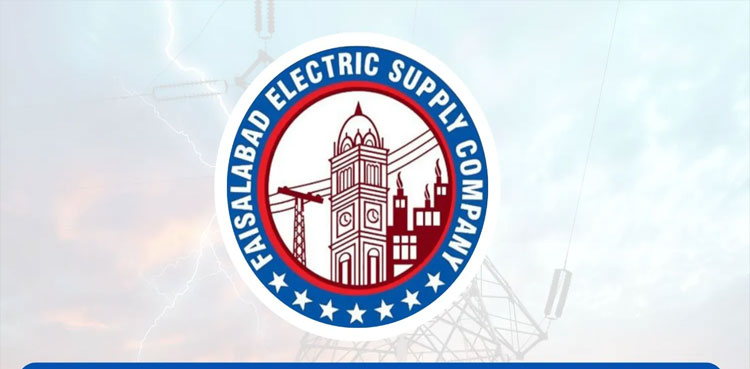
ISLAMABAD: The National Electric Power Regulatory Authority (NEPRA) has imposed a fine of Rs 10 million over the mishaps reported due to the Faisalabad Electric Supply Company (FESCO).NEPRA on Monday conducted a hearing over the accidents reported in 2023-2024 owing to FESCO.In its verdict, NEPRA said that FESCO failed to satisfy the authority over the mishaps reported owing to the power company in the year 2023-2024.It further said that the lethal accidents would have been averted with the timely actions of FESCO.NEPRA directed FESCO to ensure protective measures in its area of control.The country's power body has ordered FESCO to submit the fine within 15 days.Earlier, the NEPRA has issued its decision on the Central Power Purchasing Agency–Guaranteed (CPPA-G) petition for the monthly Fuel Charges Adjustment (FCA) for September 2025, announcing a relief of Rs 0.4812 per kilowatt-hour (kWh).The relief will be passed on to consumers in their November 2025 electricity bills.The notified FCA will also apply to K-Electric (KE) consumers under the tariff rationalization mechanism, as approved by the Economic Coordination Committee (ECC) on August 19, 2025.Any difference between the monthly FCA rate determined for KE and the notified FCA will be covered through a government subsidy, NEPRA said.Fuel charge adjustments reflect the variation in global fuel prices used for power generation and changes in the generation mix. These adjustments are incorporated into consumer bills after NEPRA’s scrutiny and approval.According to NEPRA’s decision, the September FCA will apply to all consumer categories except lifeline consumers, domestic protected consumers, electric vehicle charging stations (EVCS), and prepaid electricity consumers of all categories who have opted for the prepaid tariff.
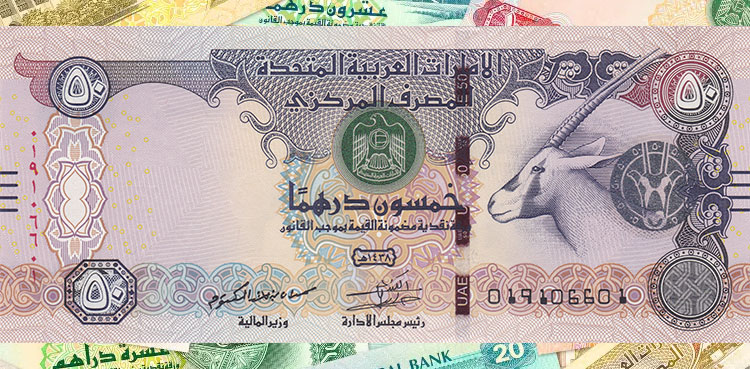
KARACHI – The AED to PKR rate slips to a fresh 2025 low of 76.42 on Monday, 17 November 2025, as the Pakistani Rupee opens the week at its strongest level against the UAE Dirham.The new trough undercuts the prior 2025 floor of 76.4225 recorded on 12 November and offers the best conversion value for remitters, importers, and travelers all year. Monday Market Snapshot - Interbank: PKR 77.80 per AED - Open-market buying: Rs 76.67 - Open-market selling: Rs 76.77 - MTD range: 77.0873 high – 76.4225 previous low - 6-month average: 76.9052UAE Dirham – Pegged at 3.6725 to the US Dollar since 1997, the AED remains one of the world’s most stable currencies. Over 1.5 million Pakistani expatriates in the UAE keep remittance channels flowing, while the Dirham has still gained 1.54 % YTD against the PKR despite the Rupee’s latest rally.Pakistani Rupee – Trading under a managed-float regime, the PKR responds to trade balances, FX reserves, inflation, and remittance flows. Today’s break below 76.50 signals tighter central-bank oversight and improved dollar liquidity.Key Drivers Behind Today’s 76.42 Rate1. Inflation differential – UAE’s near-zero CPI versus Pakistan’s elevated inflation narrows the Rupee’s real exchange rate.2. Energy prices – Stable crude helps the UAE (net exporter) while easing Pakistan’s import bill.3. Remittances – The UAE is Pakistan’s second-largest source of inflows; stronger PKR maximizes the local-currency value of each Dirham sent home.4. Trade gap – Pakistani imports of Emirati fuel, machinery and consumer goods are cheaper at 76.42, cushioning domestic prices.2025 Performance at a Glance- Jan 10 low: 75.817- Mar 10 high: 79.868- YTD average: 76.698- 12-month range: 79.8671 (10 Mar 2025) – 75.4782 (21 Dec 2024)- 180-day peak: 77.735 (21 Jul 2025)Monthly averages show progressive Rupee strengthening after the March spike:- April: 76.405- May: 76.751- June: 77.068 Who Benefits from 76.42 AED to PKR? Overseas Pakistanis – A 5,000 AED salary converts to PKR 382,100, the highest 2025 payout for families back home.Importers – Lower landed cost for UAE electronics, gold, and machinery helps tame local inflation.Tourists – 1,000 AED now costs just PKR 76,420, making hotels, flights, and shopping in the Emirates cheaper than at any point this year.Outlook: Will the Rupee Hold Below 76.50?Analysts expect range-bound trading around the 76.40-77.00 corridor through December, supported by steady remittances and IMF-aligned reforms. Barring external shocks, the AED to PKR forecast favors continued Rupee resilience, with 76.42 likely to act as a near-term support level. Quick Recap – 17 November 2025 - AED to PKR today: 76.42 – new 2025 low- Previous low: 76.4225 (12 Nov)- Open market: 76.67 / 76.77- Interbank: 77.80- 12-month high: 79.8671- 12-month low: 75.4782- 2025 average: 76.698 Bookmark this page for tomorrow’s AED to PKR live updates, historical charts, and mid-market rates.

It is the era of AI, and as the world rapidly shifts towards Artificial Intelligence (AI), Pakistan, on the contrary, remains significantly behind in adopting the technology.Pakistan, too, has begun to introduce technology across various sectors, and several AI-based applications are already in use. However, the country is still far behind many others in terms of adoption and integration.This was revealed in the “AI Diffusion Report 2025”, released by Microsoft’s AI Economy Institute, based on a study of 170 countries, which found that the use of technology in various sectors of Pakistan is less than 15 per cent.Reasons for Slow AdoptionThe slow progress in AI system adoption in Pakistan has been attributed to limited internet access, a shortage of digital skills, and the lack of tools available in local languages.The report argued that expanding AI support for Urdu and regional languages could significantly improve the usage of in Pakistan. According to the report, countries where people can use AI in their native language, such as English or Arabic, are seeing a much faster acceptance.The report ranked the United Arab Emirates (UAE) and Singapore at the top of the global index in the growing use of artificial intelligence, with over 50 per cent of people incorporating technology into their daily activities.Expert Analysis and Advice IT expert Umair Arif, while talking during the ARY News program “Bakhabar Savera,” termed the 15 per cent usage of AI in the workforce in Pakistan an alarming situation. He cited the reasons for this as a lack of infrastructure, power problems, and a lack of public awareness on the issue. Umair Arif noted that while the job sector is definitely shrinking with the use of AI, a new industry is also emerging. He advised that those who quickly embrace and adapt to the coming changes will find artificial intelligence not as a threat, but as a supportive and enabling tool.He cautioned that in the current scenario, if anyone stagnates, they will definitely face challenges in the job market. He suggests people adapt AI tools and learn prompt engineering to remain competitive.Umair Arif stressed that every professional, whether a doctor, an engineer, or any other professional, must adjust and adapt to AI. He also noted that anyone, regardless of their field, can become proficient. He stated that by dedicating just two to three hours a week, a person could become familiar with AI within a year and learn to make effective use of it.The IT expert also praised the Government of Pakistan’s policies regarding AI, but voiced his concern over the lack of necessary budget or other favorable conditions to implement them effectively.
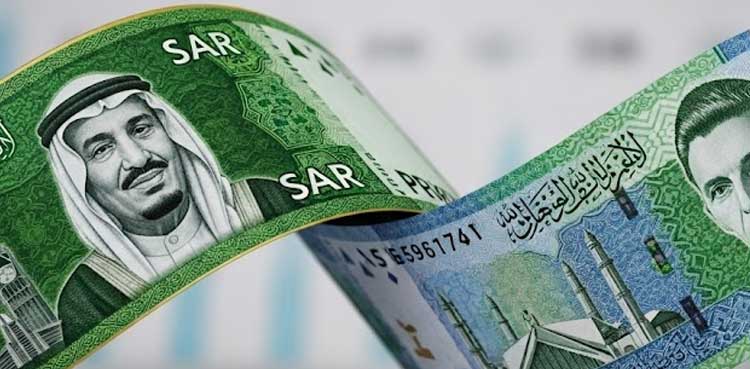
Karachi, 17 Nov 2025 – Saudi Riyal to Pakistani Rupee exchange rate today eased to Rs 74.85 in the open market, down two paisas from Rs 74.87 on 15 November and still far below the 2025 high of Rs 76.03 recorded on 28 July, forex dealers confirmed.The Saudi Riyal selling rate in Pakistan is now Rs 75.42. The marginal drop—triggered by routine market corrections and robust remittance flows—reinforces the Saudi Riyal’s position as a cornerstone of Pakistan’s economy.Every Saudi Riyal sent home fuels Pakistani households. More than 2.5 million Pakistanis work in Saudi Arabia’s construction, health-care and hospitality sectors, converting their Riyal salaries into PKR to cover school fees, medical bills and daily expenses. State Bank of Pakistan (SBP) data show Saudi Arabia alone contributed US $913.3 million of the total $2.8 billion remittances in May 2025—the largest single-country share.Over the first eleven months of fiscal-year 2024-25, Pakistan received a record $34.9 billion in remittances, up 28.8 % year-on-year. At today’s Riyal rate, 1 000 SAR equals Rs 74 850, slightly less than Rs 74 870 last week, but still enough to buy groceries for a month or pay a semester’s tuition in many cities.A softer Saudi Riyal benefits Pakistani importers of Saudi oil, polymers and fertilizers because the Riyal is pegged to the US dollar at 3.75 SAR per USD. Cheaper Riyal-denominated invoices reduce the landed cost of energy and raw materials, helping contain Pakistan’s import bill and supporting the trade balance. Meanwhile, the steady inflow of Saudi Riyal remittances keeps foreign-exchange reserves above $11 billion (October 2024 level), giving the central room to manage inflation and external debt repayments. Saudi Riyal vs Pakistani Rupee - 1 Saudi Riyal (SAR) = 100 halala, issued by the Saudi Central Bank (SAMA) and fixed to the US dollar.- 1 Pakistani Rupee (PKR) = 100 paisa, issued by the State Bank of Pakistan under a managed-float regime.- Live Saudi Riyal buying rate in Karachi open market: Rs 74.85.- Live Saudi Riyal selling rate in Karachi open market: Rs 75.42.- 28 July 2025 peak: Rs 76.03—today’s rate is 1.55 % below that high.Currency desks expect the SAR-PKR pair to hover between Rs 74.50 and Rs 75.50 through December 2025, barring major oil-price shocks or sudden dollar demand from importers. For Pakistani expats, even a 10-paisa swing matters, so timing transfers around Friday’s open-market peak can add hundreds of Rupees to each 1 000 Riyal remittance. Businesses should lock in forward contracts if the rate approaches Rs 74.40, while travelers planning Umrah can budget confidently thanks to the Riyal’s dollar peg.Today’s Saudi Riyal rate in Pakistan may have dipped microscopically, but the currency’s role remains gigantic—powering household budgets, stabilizing FX reserves and keeping Saudi-Pakistan trade humming. Track the live SAR to PKR rate daily to maximise remittance value and import savings.
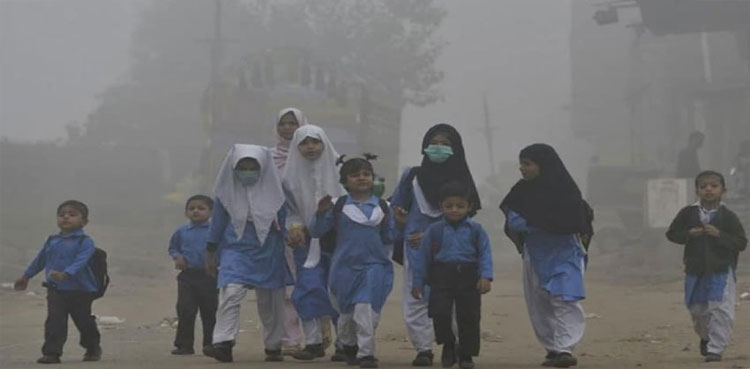
Quetta: The Government of Balochistan has announced two and half months of winter vacations in schools for colder regions starting December 16.The extended closure is implemented each year to protect students from severe weather conditions.The Balochistan schools will remain closed for a hiatus of two and half months, while they will be opened again from March 1.In Chaman, annual examinations for junior classes are already underway. According to the Education Department, exams for students from classes one to seven began on November 16 and will continue until November 24.Whereas Class 8 examinations, conducted under the Balochistan Board, will begin on November 24.Meanwhile, Punjab has also issued its winter vacation schedule. Schools across the province will close from December 23, 2025, to January 12, 2026.All educational institutions will reopen on January 13.The department said both government and private educational institutions in Punjab are required to follow the same schedule to ensure a uniform break for students across the province.The announcement comes as temperatures are expected to drop sharply in late December, with authorities aiming to provide relief to students during the peak winter period.The Education Department in both provinces has advised administrators to ensure all examinations and pre-vacation academic activities are completed on schedule.The Balochistan government has announced the vacations too early, as the winter vacations are normally announced in December. Sindh and Khyber Pakhtunkhwa have not announced the vacations yet.They will likely announce it in December.
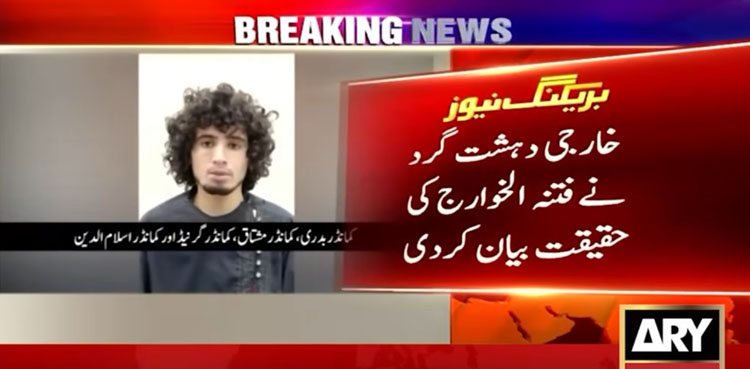
A detained militant has confessed that extremist elements associated with Fitna al-Khawarij manipulate religion to mislead young people and incite them against the Pakistan Army, ARY News reported.Identifying himself as Ehsanullah, son of Abdul Jinnan, belonging to the Mehsud tribe, the militant stated that he had worked for nearly three years as a facilitator for several commanders, including Commander Badri, Commander Mushtaq, Commander Grenade, and Islamuddin.He admitted involvement in multiple attacks, including an assault on an armoured vehicle and an attack on a police station in Tator. He further revealed that several senior militant commanders push young men toward crime for their personal interests, using religious slogans as a cover.The militant said the Khawarij elements who attempt to defame the Pakistan Army are themselves “kafir and apostate”, adding that the narrative used to recruit youth is based on deception.https://www.youtube.com/watch?v=5w0vzgiqTwQAccording to his statement, once he came into close contact with Pakistani soldiers, he realised they were “true Muslims”. He said he personally saw army personnel offering prayers five times a day and that during his time in custody, he learned how to pray and recite the kalma, which he did not practice before.Ehsanullah appealed to the youth to support the Pakistan Army to help eliminate terrorism, saying that communities had been devastated by the actions of these militant groups. He stressed that innocent people continue to suffer because of the violence spread by Fitna al-Khawarij.Security forces say operations are ongoing against groups involved in spreading terror, hatred, and sectarian division in the name of religion. Officials reiterated that the forces remain committed to eliminating all militants associated with Fitna al-Khawarij from the country.Similarly, on September 12, 2025, Abdul Samad, a militant from the Gul Bahadur group surrendered during a successful Pakistan Army operation, made startling revelations about the extremist network known as “Fitna al-Khawarij,” exposing its brutality and exploitation in the name of religion.In his confessional statement, Abdul Samad said he spent nearly four-and-a-half years in Afghanistan, receiving training in handling Kalashnikov rifles and making improvised explosive devices (IEDs). He disclosed that he stayed with commanders Sadiq and Asad of the Gul Bahadur group and later joined Asad’s faction in Zangoti, North Waziristan. According to him, militants used mosques as hubs to manufacture IEDs, mines, and even drone bombs.
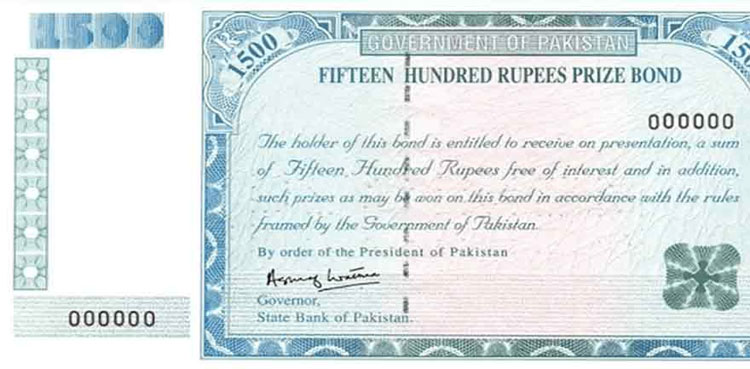
RAWALPINDI: The National Savings Centre (NSC), Rawalpindi, on Monday (today) announced the Rs1,500 prize bond draw No. 104 for November 2025.This time around, initially, the NSC has announced the winners of the first and second winners of the draw.First Prize Winner The Rs 1500 bond bearing number 091925 has won the first prize of Rs 3,000,000.Second Prize WinnersOn the other hand, three fortunate persons have won the second prize of Rs 1,000,000 each. The lucky bond numbers for the second prize are 106210, 502971, and 916702.Third Prize WinnersSimilarly, there are 1,696 third prizes, with each winner getting Rs18,500. The NSC has not issued the list of the winners of the third prize, but it will be issued later.Prize bond winners are advised to check their numbers and claim prizes through authorised banks and prize bond offices as per official procedures.Tax Deduction on Prize MoneyWinners of the Rs1500 prize bond draw will be taxed based on their tax-filing status. Registered tax filers will face a 15% tax on their winnings, while non-filers will incur a higher tax rate of 30%.This means that individuals who have filed their taxes will have a lower tax deduction on their prize amounts, whereas those who have not filed taxes will see a greater deduction from their winnings. According to the State Bank of Pakistan policy, prize amounts are subject to withholding tax, with rates determined by the winner’s filer status.As prize bonds provide a safe means to save money and the chance to win large prizes, many Pakistanis continue to pick them as their favourite investment option, including the Rs 1500 prize bond.
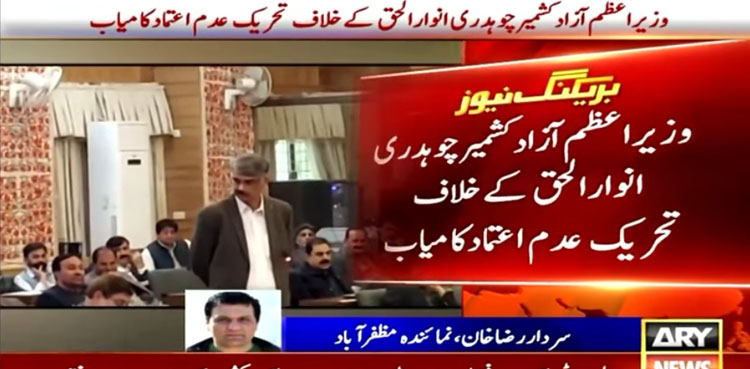
MUZAFFARABAD: The no-confidence motion against Azad Jammu and Kashmir (AJK) Prime Minister Chaudhry Anwarul Haq was successfully passed on Monday, ending his tenure following a decisive vote in the Legislative Assembly, ARY News reported.During the session, lawmakers cast their votes through a show of hands. According to the Assembly’s count, 36 members voted in favour of the motion, while only 2 opposed it, clearing the way for a change in the AJK government.https://www.youtube.com/watch?v=SbA3BoVb8HkFollowing the vote, Pakistan Peoples Party (PPP) leader Raja Faisal Mumtaz Rathore was elected as the new Leader of the House. He secured 36 votes, formally becoming the next Prime Minister of Azad Jammu and Kashmir.The transition marks a significant shift in the political landscape of AJK, with the Assembly now set to move forward under Rathore’s leadership. PPP Files No-Confidence Motion Against AJK PM Anwarul Haq On November 14, 2025, the Pakistan People’s Party (PPP) submitted a no-confidence motion against Azad Jammu and Kashmir (AJK) Prime Minister Chaudhry Anwarul Haq to the AJK Assembly Secretariat.According to sources, the motion carries the signatures of more than 17 members of the Azad Kashmir Legislative Assembly. It has been filed under Article 18-A(4) of the 1974 Interim Constitution.The motion states that Prime Minister Anwarul Haq “failed to retain the confidence of the House.” The Assembly Secretariat formally received the no-confidence motion.Alongside the motion, a requisition to summon an immediate session of the AJK Assembly has also been submitted. Under constitutional requirements, the Speaker is obligated to convene a session within three days and ensure the election of a new prime minister within seven days.Notably, Chaudhry Anwarul Haq was elected as a member of the Assembly on a PTI ticket and later became prime minister with the support of the PTI forward bloc, PPP, PML-N and the Muslim Conference.Later, the PPP nominated Raja Faisal Rathore for the position of Prime Minister of Azad Jammu and Kashmir.
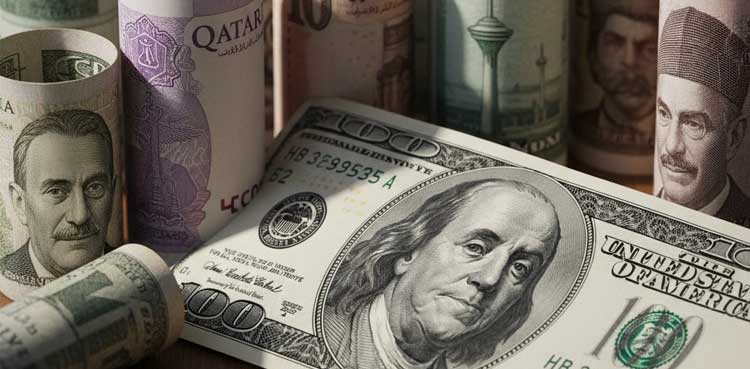
Karachi, 17 November 2025 – The Pakistani rupee opened the week on an even keel, with the State Bank of Pakistan’s (SBP) daily mark-to-market (M2M) currency rates sheet showing almost no change in the dollar or Gulf-pegged currencies. The interbank reference rate for the US dollar was fixed at Rs 280.7115 for spot delivery, barely two paisa away from Friday’s close, while forward premiums out to twelve months remained compressed—an indication that banks and corporates see little near-term volatility in the exchange market. Priority Currencies – Detailed Analysis US Dollar (USD) – 280.71 (spot) The world’s reserve currency has now traded inside a 90-paisa range for seven consecutive sessions. One-week forwards are quoted at 280.88, implying a carrying cost of only 17 paisa—less than 0.06 %. The tight band is being read by treasury desks as tacit approval from the central bank for the current level, especially after last week’s $1.2 billion bilateral inflow from Saudi Arabia. A senior dealer at a large domestic bank said, “Liquidity is comfortable; exporters are selling every uptick above 281.00 while oil importers are buying dips. The equilibrium looks durable at least until the next IMF tranche discussion in December.” Saudi Riyal (SAR) – 74.85 The Kingdom’s currency remains the single most important bilateral unit for Pakistan, channeling annual remittances worth $6.7 billion. Today’s spot rate translates into exactly 74.85 paisa per halala, with one-month forwards at 74.90—effectively flat. Exchange companies report brisk demand from prospective Hajj pilgrims who are locking in rates now rather than waiting for the traditional December rush. “We expect SAR/PKR to stay glued to 74.80-75.20 through early 2026,” remarked the head of treasury at a leading exchange company in Lahore. UAE Dirham (AED) – 76.43 Dirham inflows—mostly from Dubai-based construction and logistics workers—account for 28 % of total home remittances. The spot quote of 76.43 puts the implied USD/PKR cross at the same 280.71 level used by the SBP, confirming zero arbitrage. Forward points are equally thin: six-month AED is 77.72, an annualised premium of only 1.1 %. Currency retailers say the stability has encouraged UAE employers to switch more salary disbursements to official banking channels, a trend that should support the rupee into the winter months. Qatari Riyal (QAR) – 77.01 Qatar’s riyal trades at a 1.5 % premium to SAR, reflecting the minor difference in USD cross-rates on LSEG Workspace rather than any Pakistan-specific factor. Spot QAR is 77.01; one-year forward is 80.33, implying 4.3 % annualised depreciation—almost identical to the SAR curve. With QatarEnergy still hiring Pakistani labour for LNG expansion projects, bankers expect Qatari flows to pick up in the second half of FY-26. Kuwaiti Dinar (KWD) – 915.29 The world’s highest-valued currency remains comfortably above 900. Despite Kuwait’s fiscal surplus from elevated oil prices, the dinar’s USD-peg keeps KWD/PKR moves purely a function of the rupee’s own fortunes. Today’s 915.29 spot compares with 914.80 exactly one month ago—a gain of just 49 paisa. Twelve-month forwards at 962.67 pencil out to 5.2 % annualised rupee weakness, marginally wider than SAR or AED due to lower dinar liquidity rather than macro concern. Bahraini Dinar (BHD) – 744.54 Bahrain’s currency shadows KWD but trades at a slight discount because of Manama’s lower sovereign rating. Spot BHD is 744.54; six-month forward 755.23, an annualised 2.9 %—the flarest curve among Gulf units. Bahrain is a small but stable source of IT and hospitality remittances; dealers do not foresee any breakout from the 740-750 range this fiscal year. Australian Dollar (AUD) – 183.45 The “Aussie” has clawed back 2.4 % against the rupee since early October, helped by firmer coal quotations on the Newcastle index and a Reserve Bank of Australia that is still talking hikes. Spot AUD buys 183.45; one-year forward is 191.39, implying 4.3 % annualised rupee depreciation—almost the same as QAR, underscoring how commodity currencies are pricing gradual PKR softness rather than a cliff-edge. Exporters of textiles to Melbourne are selling forward six-month receivables at 186.60, locking in a premium over domestic forwards. Canadian Dollar (CAD) – 200.24 The “Loonie” has held above the psychological 200 mark for three straight weeks, underpinned by West Texas Intermediate hovering near $78 a barrel. Spot CAD is 200.24; twelve-month forward 212.10, an annualised 5.9 %—the steepest curve among the eight priority units, reflecting thinner CAD liquidity and the currency’s historic beta to oil. Importers of pulses from Saskatchewan are said to be covering February shipments early, wary of possible winter supply disruptions. Other Majors Euro opened at 325.96, essentially flat on the week despite Friday’s mixed German Ifo data; one-year forward is 346.00, translating into 6.1 % annualised rupee weakness. Sterling buys 369.84, little moved after Bank of England rhetoric cooled rate-cut bets. Japanese yen remains the cheapest major at 1.81 per unit, but forwards price 7.7 % annualised PKR decline—the steepest among G-10 pairs owing to ultra-low yen carry. Swiss franc is 353.79; Singapore dollar 215.82; Swedish krona 29.71; Norwegian krone 27.80; Danish krone 43.65; New Zealand dollar 159.64; Chinese yuan 39.51; Turkish lira 6.63; Russian ruble 3.46; Indian rupee 3.17; Bangladeshi taka 2.30—all inside well-worn ranges and implying no event-risk premium ahead of the IMF’s first-quarter 2026 review. Market Context & Outlook The uniformly narrow forward premiums—barely 5-6 % annualised even for the least-liquid pairs—tell currency desks that both importers and exporters believe the State Bank has enough cover to defend the rupee through the winter remittance season. Reserves have risen $1.5 billion in six weeks to $14.8 billion, while the real effective exchange rate (REER) slipped to 98.2 in October, a level the IMF considers “competitive but not undervalued.” Unless oil spikes above $90 or political noise disrupts the Fund programme, traders expect USD/PKR to remain hand-cuffed to the 279-282 corridor for the rest of 2025, dragging the rest of the currency mosaic along in its slipstream.

Pakistan’s IT exports reached 386 million dollars in October 2025, according to the State Bank of Pakistan.As per report shared by the State Bank IT exports recorded a 17 per cent year-on-year increase, along with a 5 per cent rise compared with the previous month. The average monthly IT exports over the past year stood at 332 million dollars.In Karachi, the central bank’s data indicated that total IT exports from July to October surged by 20 pe rcent, reaching 1.4 billion dollars.For the current fiscal year, the government has set an IT export target of 5 billion dollars, while the previous year’s IT exports amounted to 3.8 billion dollars.Industry experts described the figure as the highest monthly performance in the past 12 months.In September 2025 alone, monthly IT exports hit a record $366 million, the SBP reported.Industry experts said that Pakistani IT firms are increasingly focusing on enterprise resource planning (ERP), automation systems, cybersecurity, and artificial intelligence (AI) solutions, contributing to higher global demand.Freelancers from Pakistan are also playing a key role, earning valuable foreign exchange by completing international projects through major global platforms.The training of young IT professionals and institutional capacity-building programs are creating new employment opportunities and helping sustain export growth.
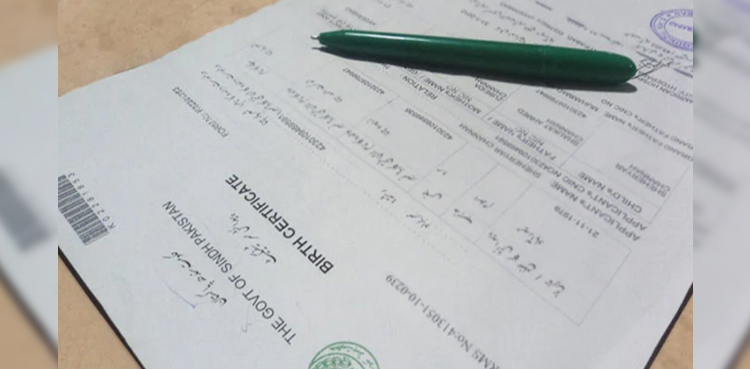
The National Database and Registration Authority (NADRA) has advised parents to update B-Forms of their children.In an update, NADRA urged parents to promptly apply for the issuance of a new B-Form to avoid any inconvenience during school admission if their children turned three.Once a child reaches the age of three, the previously issued B-Form expires, and a photo B-Form is required for further official records, the NADRA said in its advisory for the parents.To obtain the new B-Form, you may either visit the NADRA office along with the child, or apply conveniently from home through the Pak ID mobile application. NADRA announces long-awaited facility for citizens The National Database and Registration Authority (NADRA) has rolled out another new digital facility for citizens.Citizens can now allow to complete biometric verification for the sale and purchase of Islamabad-registered vehicles through the Pak ID mobile application.The move shifts the process from physical verification to online verification. Earlier, citizen had to visit the NADRA office and wait in the queue for their turn for hours.The new system allows citizens to complete biometric checks from home before proceeding with the remaining transfer formalities at the relevant government office. NADRA urges citizens to collect their CNICs on time The National Database and Registration Authority has advised citizens to collect their Computerized National Identity Cards (CNICs) promptly after issuance.According to NADRA, identity cards that remain uncollected are disposed of after three months in accordance with policy. Applicants must then submit a new application and pay the prescribed fee to have the card reissued.Citizens are therefore urged to collect their CNICs from the NADRA office as soon as the processing period is completed to avoid inconvenience.Earlier, the National Database and Registration Authority urged all citizens to cancel Computerized National Identity Cards (CNICs) of deceased family members.
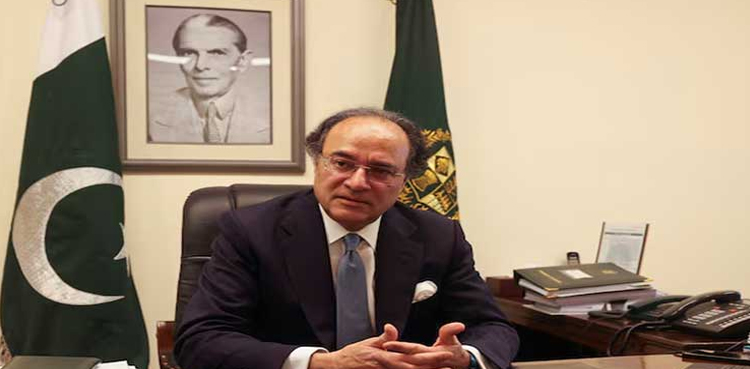
ISLAMABAD: Federal Minister for Finance and Revenue Senator Muhammad Aurangzeb on Monday said that Pakistan is implementing the IMF program and structural reforms.Finance minister said that the economy is moving towards improvement and the country continued its trajectory toward macroeconomic stabilization and growth.Addressing the launch ceremony of the District Vulnerability Index for Pakistan (DVIP), organized by the Population Council minister said that Pakistan’s long-term economic outlook was linked to effectively tackling the dual challenges of rapid population growth and mounting climate vulnerability.He said that the impacts of high population growth were reflected in persistent human development challenges, including child stunting, poverty and a workforce insufficiently equipped for the future.The minister said, the climate change continued to expose communities to extreme temperatures, floods, droughts, and environmental degradation, with the most severe effects falling on districts already struggling with poverty, weak infrastructure, and limited access to essential services.Senator Aurangzeb highlighted the need to recognize the interdependence between population dynamics and climate impacts and called for the integration of vulnerability metrics into future frameworks for resource allocation.
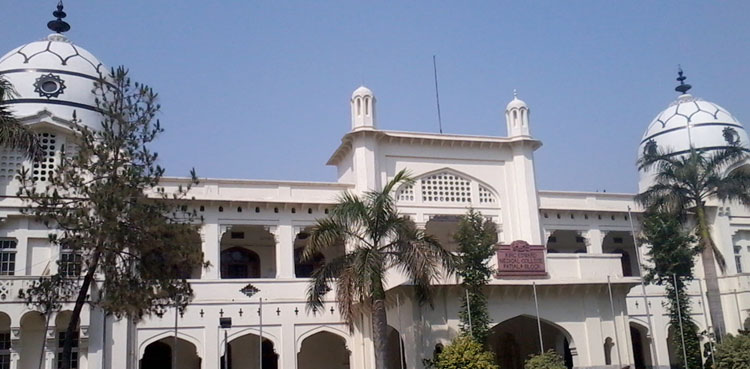
The Federal Constitutional Court (FCC) has overturned the Lahore High Court’s decision that had nullified the appointment of Dr. Asad Aslam as vice chancellor of King Edward Medical University (KEMU).According to the judgement of the Constitutional court, the case remained pending and was not fixed for hearing in the Supreme Court for nearly eight years after it was filed. The Constitutional Court noted that after such a prolonged delay, the matter required final adjudication.The original petition was filed by Iftikhar Ahmed, challenging the appointment of Dr. Aslam as the Vice Chancellor of the historic medical institution.The Lahore High Court had previously ruled in favor of the petitioner and set aside the appointment, prompting the legal challenge that ultimately reached the Constitutional Court.During the hearing in Islamabad, no party appeared before the court. However, the bench clarified that if any party believes it is aggrieved by this order, it may approach the court for appropriate relief.The decision effectively restores the status of the KEMU Vice Chancellor, unless a new plea is submitted and adjudicated.Earlier in the day, two more judges of the Federal Constitutional Court took oath, bringing the total number of sworn-in judges to seven.As per details, Chief Justice of the Federal Constitutional Court, Justice Amin-ud-Din Khan, officiated the oath to Justice Rozi Khan and Justice Arshad Hussain Shah.Justice Hassan Azhar, Justice Aamer Farooq, Justice Ali Baqar Najafi and Justice K.K. Agha had already been sworn in. FCC benches Bench-I: Chief Justice Amin-ud-Din Khan, Justice Ali Baqar Najafi, Justice Arshad Hussain Shah.Bench-II: Justice Hassan Rizvi, Justice K.K. Agha.Bench-III: Justice Aamer Farooq, Justice Rozi Khan
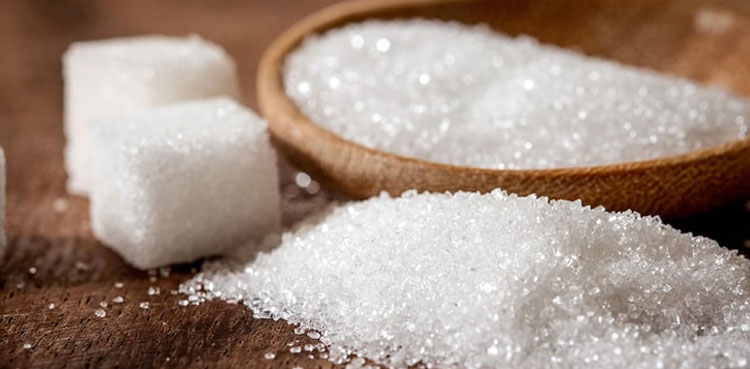
The Pakistan government has 'decided' to end its 77-year control over sugar prices by deregulating the industry, ARY News reported on Monday, citing sources in the Ministry of National Food Security.A formal summary to deregulate the sugar sector has been prepared and is expected to be presented to the Prime Minister later this week. Federal Minister for National Food Security Rana Tanveer Hussain will brief the Prime Minister on the proposal, the sources added.As part of the deregulation plan, the government has also proposed to lift the ban on establishing new sugar mills, allowing private investors to set up new units under an open-market framework.Once deregulated, the government will no longer hold authority over the import and export of sugar.Moreover, the official mechanism for fixing sugar prices will be abolished, enabling pricing to be determined solely by market forces, the sources confirmed.If approved, the decision is expected to transition the sugar sector into a fully market-driven industry, where supply and demand will dictate retail and wholesale prices without state intervention.Meanwhile, sugarcane farmers of Punjab and Sindh have decided in a Jirga here to boycott supply of the crop to sugar mills on low price.A gathering of the sugarcane farmers from Sindh and Punjab warned that the growers will not harvest the crop if the government wouldn’t fix per maund rate of sugarcane at Rs. 600.“We will set our standing crops on fire but won’t be blackmailed by the sugar mills mafia,” farmers speaking at the gathering announced.
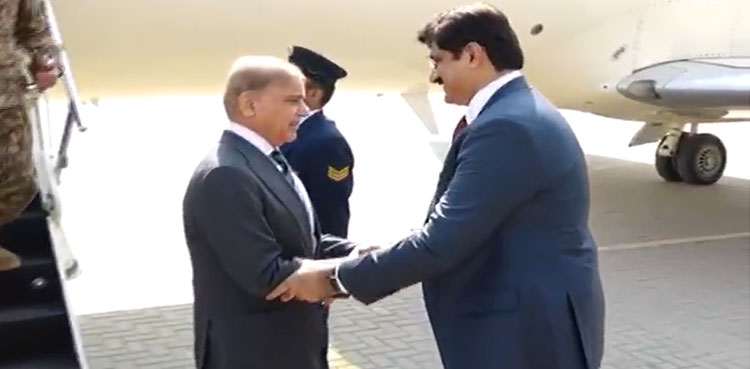
KARACHI: Prime Minister Shehbaz Sharif landed in Karachi on Monday on a daylong visit to inaugurate renovated Cantt railway station.Chief Minister of Sindh Murad Ali Shah and other officials received the prime minister at the airport.PM Shehbaz Sharif will inspect the up-gradation of Karachi's Cantt railway station and will inaugurate it.Railways Minister Hanif Abbasi will brief the prime minister about the modern facilities provided at the Cantt station.In the up-gradation project of the railway station two modern lounges have been built, while three waiting halls and executive washrooms work has also been completed and four escalators installed at the station.An information desk has also been made to facilitate passengers at the Cantt Station.
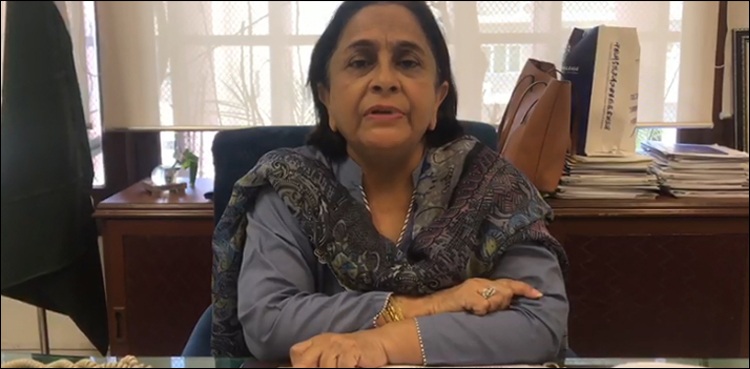
KARACHI: Sindh's health minister launched 13-day vaccination drive against measles and rubella from Nov. 17 (today) till Nov. 29.Measles and rubella are highly contagious diseases that continue to pose health challenges.In the campaign children between the ages of 6 months to 5 years will be provided free MR vaccine in 30 districts of Sindh.Moreover, polio drops will also be administered to children of up to five years in 23 districts of the province.The province has deployed over 30,000 frontline staff including 6,532 vaccinators and equal number of team assistants for the vaccination drive.Health Minister Azra Fazal Pechuho speaking on the occasion asked the vaccinators to perform their duty with serious commitment and complete their daily targes of the campaign."It is legally mandatory to vaccinate children, action will be taken in case of non-cooperation from parents or institutions," minister said. "Licenses could be cancelled and institutions shutdown, if the private or government schools failed to cooperation", Pechuho said.She also directed for constitution of special teams to tackle the cases of resistance, which should report on daily basis."The National Cybercrime Agency will take action in case of spreading fake information or rumors about vaccination," minister said."Those involved in negative propaganda or rumour mongering would pose threat to the health of children," she added.While all three diseases are preventable through vaccination, sporadic outbreaks in the past have highlight gaps in immunization coverage, misinformation and access to health care in remote areas.In specific high-risk districts, polio drops will be administered along with measles, rubella vaccine so that every child is protected.The measles-rubella (MR) vaccine will protect 35 million children aged 6 months to under five years nationwide, the NEOC said.Measles and rubella spread through respiratory droplets and can cause pneumonia and encephalitis.

The Punjab Home Department has extended the enforcement of Section 144 across the province for an additional seven days, ARY News reported on Monday.Section 144 enforcement has been extended to maintain a complete ban on protests, rallies, public gatherings, sit-ins, and all similar activities across Punjab.Under Section 144, no more than four individuals will be allowed to assemble at public places.The Home Department has also imposed a complete prohibition on the public display of weapons, while the use of loudspeakers remains restricted across Punjab.Authorities stated that the publication or distribution of provocative, hate-based, or sectarian material is strictly banned.The extension has been implemented to maintain law and order and ensure the protection of lives and property, amid concerns over potential threats to public safety and possible attempts to exploit public gatherings for anti-state activities.The government asserted that terrorists could consider large public crowds as soft targets, and therefore preventive measures are necessary to avert any untoward incidents.The restrictions, however, will not apply to wedding ceremonies, funeral prayers, or burials. Similarly, government officials on duty, law enforcement personnel, and courts are exempt from the ban. Loudspeakers may be used only for the call to prayer (Azaan) and Friday sermons.The Home Department has issued a notification extending Section 144 across the province until Saturday, 22 November, and has directed authorities to carry out extensive public awareness campaigns regarding the restrictions.
© Copyright 2025, All Rights Reserved

